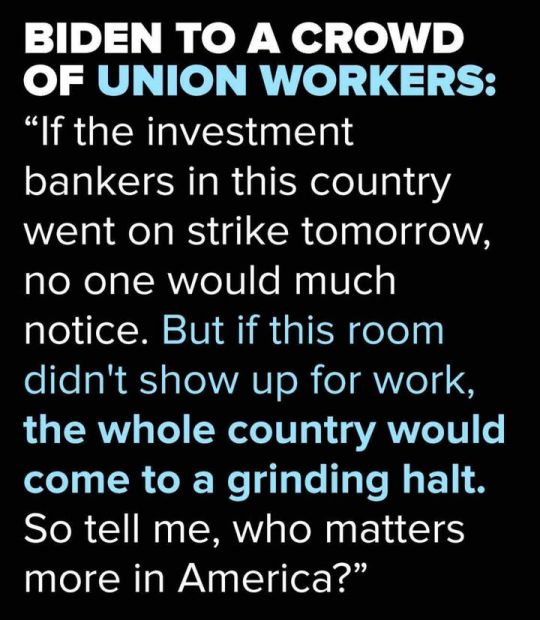this post was submitted on 21 Aug 2023
303 points (89.8% liked)
unions
1674 readers
22 users here now
a community focused on union news, info, discussion, etc
Friends:
- https://lemmy.ml/c/labor
- https://sh.itjust.works/c/unions
- https://lemmy.ml/c/coops
- https://lemmy.ml/c/antitrust
founded 2 years ago
MODERATORS
you are viewing a single comment's thread
view the rest of the comments
view the rest of the comments

Then on April 20:
"We’re thankful that the Biden administration played the long game on sick days and stuck with us for months after Congress imposed our updated national agreement,” Russo said. “Without making a big show of it, Joe Biden and members of his administration in the Transportation and Labor departments have been working continuously to get guaranteed paid sick days for all railroad workers."
While it is a good thing they're afforded 4 or 5 sick days and the right to use accrued leave for 2 or 3 days when sick, the end result is a much reduced contract that only really came about from public pressure at large.
The unions asked for two weeks before the Biden administration broke their right to strike. It is highly probable and apparent the companies could have afforded the two weeks to its workers.
Greatly reducing the union's negotiating power is the ultimate legacy of the Biden administration's decision here, nonetheless.
Do you believe the union thought they would get 2 weeks, or did they start with that knowing they'd need to bargain down? I seriously wonder if they could have gotten 4+3 if they'd kept the strike up.
Also keep in mind, no one wants to strike. It's a means to an end. Striking is pretty devastating for the workers and their families.
I think when you're negotiating a contract and a critical means to an end is prohibited, it compromises the negotiations. Like I said, it appears the rail companies made enough to afford it.
Rail workers didn't go on strike so there wasn't a strike to have kept up. The union and the rail companies were in negotiations. The companies refused to bargain and asked the Biden administration to intervene and Biden obliged.
So the question is then: would the rail companies have negotiated any differently or bargained in good faith if they faced actual consequences? I think it is very obvious they would have been forced to concede to the union a very basic and reasonable contract provision.